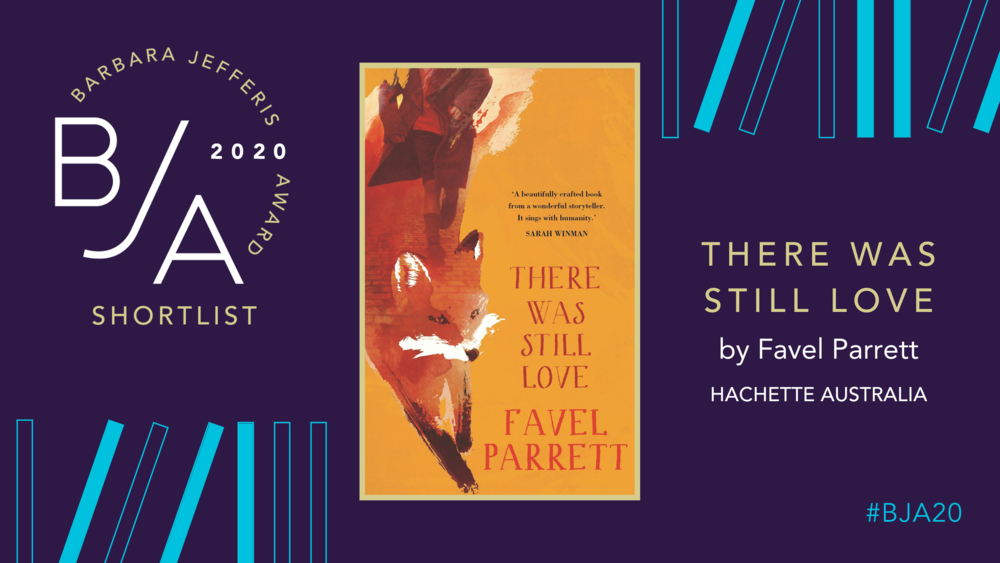23.10.20

Favel Parrett on There Was Still Love, shortlisted for the 2020 Barbara Jefferis Award.
How did you begin writing? Was there a moment when you made the decision: I want to be a writer?
I wrote a lot when I was a teenager and dreamed of becoming a writer. But I didn’t believe it would be possible and so I put my dream aside for a very long time. It wasn’t until I was about 30 that the dream screamed loudly enough for me to stop and listen. At the time, I worked as postal worker in Melbourne CBD. I was brave enough to apply for Professional Writing and Editing and CAE TAFE, and was totally surprised I got in. I never finished my diploma, but I did finish a novel that would later become Past the Shallows. I am very grateful I started to write again as finishing Past the Shallows truly changed my life. I always try to tell other aspiring writers that it is possible. I am living proof!
What inspired you to write There Was Still Love?
This novel came straight out of my heart. It is a love letter to my grandmother, Mitzi. I realised I knew nothing about her life before me, so I had to make it up. I had to write it – just for me. I never believed it would get published, but once I started it I couldn’t let it go because I wanted to be with my grandparents again so badly.
I wanted people to meet my lovely grandparents and experience their kindness and strength. I also wanted people to think about their own families and family history and to connect with the stories that made up the lives of people that came before we did.
In what ways do you think the female characters in There Was Still Love might be empowering figures for women and girls?
I wanted to honor my grandmother and what she meant to me. But on the journey of writing this book, I discovered that grandmother across Eastern Europe were the glue that held everything together during the toughest decades of communism. They were the child minders, the cooks, the careers. They were the ones who had seen so much change and still didn’t fall apart. They held up the sky so that the next generation could be free from fear. I wanted grandmothers to shine in this book, and for their stories to be heard. I have even more respect for my own grandmother after writing this book, and even though it is fiction – I really do feel like I know her so much better now.
What was the most challenging thing about writing this book?
The most challenging thing about writing this book was getting the Czechoslovakian characters and experience right without turning the whole thing into a cliché of what it was like under communism in the 1980s. I wanted to capture real life, ordinary life. The life of a small boy and his beloved grandma. I had to become my characters – be them and feel all of it. I had to research and research and research! I really did learn so much over the 18 months this novel took me to write. It was such a complete joy to have my grandparents with me again in my heart and mind while I wrote this novel. So, the other hard thing was finishing the book and saying goodbye to them. I truly believe they were there with me in my writing room, looking over my shoulder and giving me encouragement to keep going. They are and were the very best of people
Which Australian authors have been influential on your writing?
Mette Jakobsen, Maxine Beneba Clarke, Jessica Anderson, David Malouf, Robert Drewe
Keep up-to-date with ASA advocacy, support and advice
with our fortnightly newsletter.